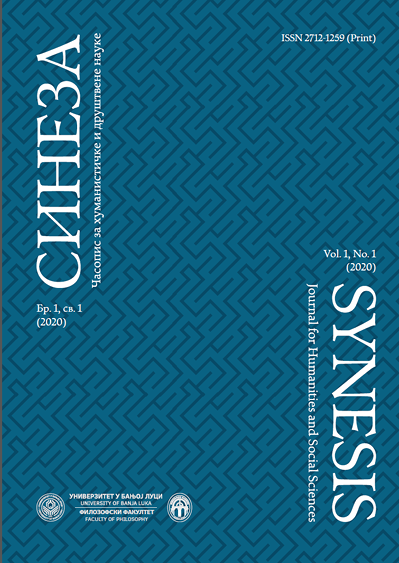Eksterni i interni argumenti kao dokazi urođenih ideja
External and internal arguments as evidence of innate ideas
A study of the work of John Locke and Gottfried Lebniz
Author(s): Srećko KovačevićSubject(s): Philosophy, History of Philosophy, Epistemology, Early Modern Philosophy
Published by: Filozofski fakultet, Univerzitet u Banjoj Luci
Keywords: innate ideas; external; internal; argument; Understanding;
Summary/Abstract: In this paper, we analyse the problem of innate ideas through the binary form of external-internal. An argument is external if it points to an external entity and is based upon it. On the other hand, an argument is internal if it is based on an internal position. The analysis of An Essay Concerning Human Understanding and New Essays on Human Understanding presents the respective arguments and examples offered by John Locke and Gottfried Leibniz regarding innate ideas. This position offers a different view of their attitude or initial points, by which they defend their philosophical attitudes. In addition, the paper raises the question of the importance of an argument for a particular claim. If the claim is an external form, each argument offered becomes part of the external claim, and the opposite is true for the internal form. The analysis shows that Locke’s and Leibniz’s arguments cannot be reconciled, precisely because they belong to only one of the given forms (external or internal).
Journal: Sineza
- Issue Year: 1/2020
- Issue No: 1
- Page Range: 31-52
- Page Count: 22
- Language: Serbian

